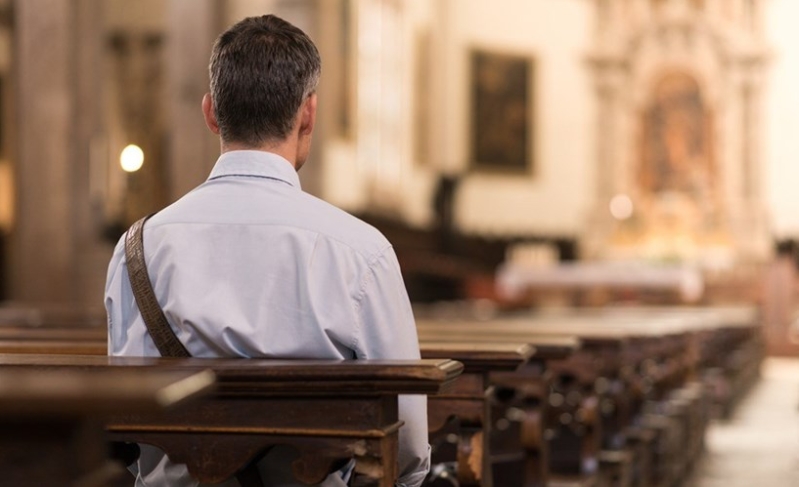
Church leaders in Britain have vowed to "keep finding new ways" to spread the Gospel after a new study found that the UK is becoming an increasingly godless society, with more than half of the population now describing themselves as having "no religion."
According to the latest data from the National Center for Social Research's (NatCen) British social attitudes survey, the proportion of non-believers is at a record high of 53%, with just 15% of people belonged to the Church of England (CofE), 9% to the Catholic Church, 17% to other Christian denominations, and 6% to other religions.
The proportion of those who describe themselves as having "no religion" has also increased gradually since the survey began in 1983, when it stood at 31%.
Of the remaining six per cent belonging to other faiths, half were Muslim and a third were Hindu, with Jewish, Sikh, Buddhist and other groups all smaller.
Overall, the decline in religion has been driven by young people: In 2015, 62 per cent of those aged between 18 and 24 said they had no religion, and this increased to 71 per cent last year.
The fall affects ages, but those with no religion remain in the minority among older groups, representing 40 per cent of 65 to 74-year-olds and 27 per cent of over-75s. The split is 50-50 among those aged 55 to 64.
The British Social Attitudes survey carried out 2,942 interviews of adults across Britain, with the question worded as "Do you regard yourself as belonging to any particular religion? IF YES: Which?"
Roger Harding, of the National Center for Social Research which publishes the survey, said the latest figures followed "the long-term trend of more and more of us not being religious".
He added: "The differences by age are stark and, with so many younger people not having a religion, it's hard to see this change abating any time soon. The falls in those belonging to the Church of England are the most notable, but these figures should cause all religious leaders to pause for thought."
Bishop of Liverpool, the Rt Revd Paul Bayes, said that while the findings were "troubling", the Church will continue to "keep finding ways to show and tell those who say they have 'no religion' that faith - faith in the God who loves them still - can make that life-transforming difference for them and for the world."
"In this modern world people are more willing to be honest and say they have 'no religion' rather than casually saying they are 'CofE'. This honesty is welcome," he said.
"Of course the latest BSA figures bring a continuing challenge to the churches, to speak clearly of our faith into a sceptical and plural world. But saying 'no religion' is not the same as a considered atheism. People's minds, and hearts, remain open," he added.
"People see the point of faith when they see the difference faith makes. So we seek to show that knowing Jesus makes a difference personally, and makes a difference for society. I believe that by showing that difference, more people will come to know God's love," he said.
The Bishop of Chelmsford, the Rt. Rev. Stephen Cottrell, admitted that "it's always troubling for the institution of the Church to see numbers declining and to hear how younger people are less and less engaged with the life of the church."
However, he pointed out that the Church is "not an institution."
"The church is that community of men and women whose lives are centered on Christ. We do care about numbers, but only because we care about people," he continued.
"But most of all we care about that vision of justice and peace for all that is given us in Christ, and we will get on with living and sharing that vision with a few dozen people, a few thousand people, or a few million people: whoever it is that responds to the call of God in Christ."
A 2015 survey released by the Pew Research Center similarly found that the "Christian share of the U.S. population is declining," as there are 5 million fewer Christians across the United States than there were in 2007, and millions more who identify as atheist.
However, despite the seeming decline of Christianity in the West, Christianity Today contributor Ed Stetzer explained that the statistics "are simply starting to show a clearer picture of what American Christianity is becoming-less nominal, more defined, and more outside of the mainstream of American culture."
He wrote, "For example, the cultural cost of calling yourself 'Christian' is starting to outweigh the cultural benefit, so those who do not identify as a 'Christian' according to their convictions are starting to identify as "nones" because it's more culturally savvy.
Because of this, the statistics show (on the surface) that Christianity in America is experiencing a sharp decline. However, that's the path of those who don't read beyond the surface. If there remains a relatively stable church-engaged, convictional minority, and there is a big movement on self-identification, that means that the middle is going away."
Stetzer concluded, "Christianity is, and will continue, to lose its home field advantage; no one can (or should) deny this. However, the numerical decline of self-identified American Christianity is more of a purifying bloodletting than it is an arrow to the heart of the church."







